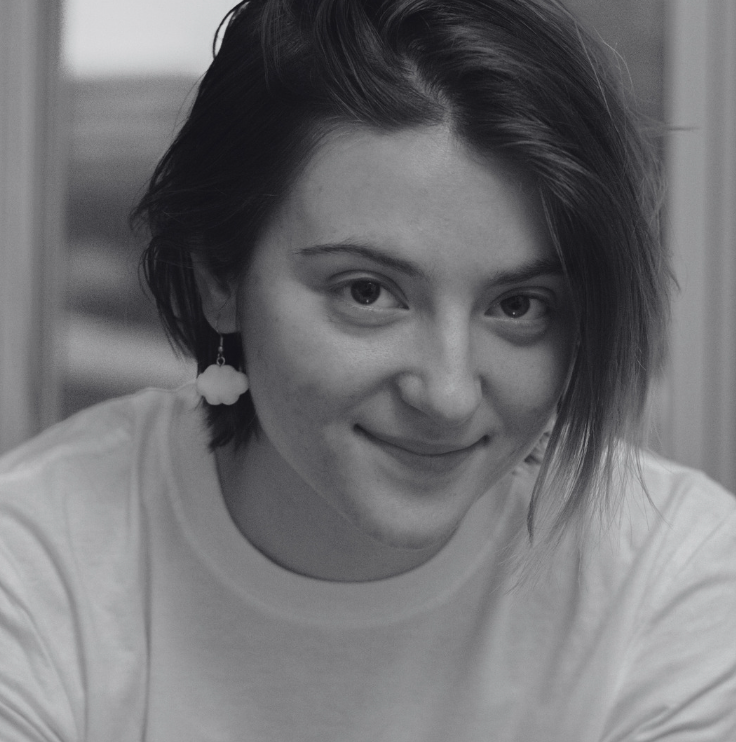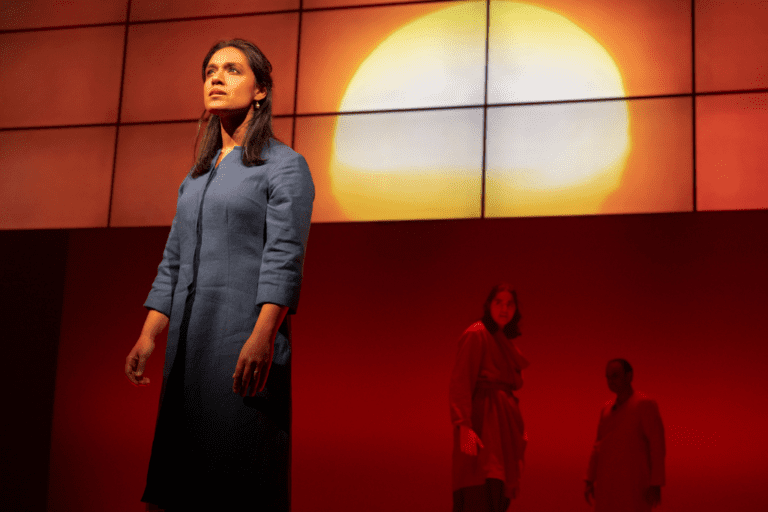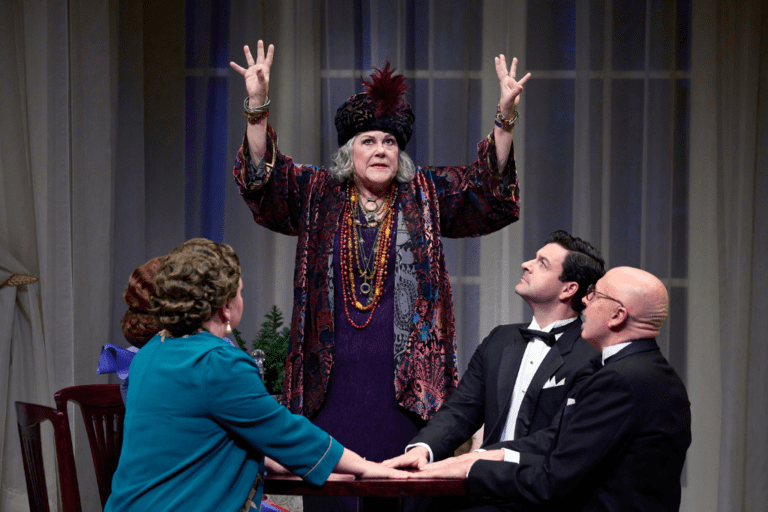For Trip the Light Collective, Ottawa Fringe ‘is a sandbox of creativity’
When Trip the Light Theatre Collective presented their first creation Nuit at the Ottawa Fringe festival in 2023, they had what company co-producer and director Sophie Goyette-Hamels called “the perfect Fringe show.” A dance comedy about nightlife and clubbing culture, Nuit was an undeniable success and, after an award-winning run in Ottawa, it went on to sell out every one of its performances at the Guelph Fringe.
A year has passed, and the Ottawa-based company is making a return with their new work Polygraph. Premiering at the 2024 Ottawa Fringe, co-producer and performer Sarah Ivanco described the show in an interview as “a devised dance-theatre piece about violence and misogyny against women in the film and music industry.”
Though excited to perform to local audiences again after the success of Nuit, the Trip the Light team are encountering new challenges: “[Nuit has] everything someone wants,” Goyette-Hamels said. “Polygraph is very different in terms of theme and vibe. It’s very serious. It’s very intense. And so, that’s harder to market.”
“It’s a very emotional show,” Ivanco agreed. “But it’s something we really want to talk about.”
In a city like Ottawa, emerging companies like Trip the Light rely on the Fringe as an accessible avenue to present new work. But when Fringe-goers lean toward genres of storytelling such as comedies and solo shows, artists feel caught between catering to audiences’ interests and delving into the heavier topics they long to explore.
“If you see a smiling, silly person on a poster with bright colours and some disco balls, you’re like, ‘Ooh, fun! That looks nice,’” Goyette-Hamels said, describing the poster for Nuit. “But seeing something more serious, sometimes people need a little bit more time before they’re ready for that kind of thing. So that’s been harder, but I’m very excited to come back to the Fringe.”
And that’s where Trip the Light now has a leg up — this isn’t their first Fringe rodeo and they’re “not starting from zero,” Goyette-Hamels noted.
Instead of despairing the promotional hurdles of presenting at a Fringe, the co-producer went on to highlight the benefits a local festival provides: “We can all have our jobs on the side, we don’t have to billet, we can rehearse at LabO… There are a lot of great financial reasons to be doing [Fringe] here and to test [Polygraph] out here.”
(Hot Ottawa Artist Tip: the University of Ottawa’s theatre department offers Fringe rehearsal space in LabO for $5 an hour. Unreal.)
In addition to alleviating artists’ costs, the company recognizes the festival’s importance in providing audiences access to performance styles that might not otherwise be available to them. “A lot of typical dance theatre and musical theatre are at venues that are less accessible to the public, because they’re generally really expensive,” Ivanco told me. “So being able to bring these sorts of forms to Fringe and make it accessible is a great opportunity for us, as artists, to be able to connect with our community.”
As a queer-led dance-theatre company, Trip the Light focuses on creating work that breaks norms and transcends disciplines, and Polygraph is no different. The main inspiration for its conception, Goyette-Hamels shared, was the hope to “try out a new devising process.”
“We’ve never worked with the script first,” she said. “For Nuit, we had 60 different written submissions that were all between a sentence and two pages long that we used as the start of the creation. This time, I wanted to see if we could start with 50 per cent of a script, then take it all apart, and put it back together.”
When local playwright Harley Wegner was commissioned for this project, Trip the Light provided few creative restrictions. “I was very open with them on what they could write about,” Goyette-Hamels said. “I wanted something with some tension, I wanted some intensity, but I left it to them to decide what they wanted to do. They told me that they were very interested in interviews with celebrities and how that can escalate… and put together about 20 pages of a script for us.”
Goyette-Hamels recalled how odd it was “to be sitting down for the first four rehearsals” and found they had “40 minutes of pure words.”
It’s no secret that Fringe shows are bound to a brisk 60-minute runtime and, reading Wegner’s text, Ivanco remembered asking themselves: “How are we going to add movement to this? There’s no space!”
Despite these concerns, Goyette-Hamels emphasized that “this is the first draft. What we’re doing is just the first run of the show. We’re gonna run it, we’re gonna get feedback from people, and then hopefully do a tour next year. But that’s what we keep reminding ourselves – we can’t make it perfect now.”
“Fringe is really like a sandbox for creativity,” Ivanco added. “[We’re] seeing where we can go outside of the box to bring shows that maybe fringe festivals don’t see as often… It’s stories we want to tell and it’s stories that reflect our experience.”
The stories in this case, Ivanco explained, are of the “continuous cycle of abuse” non-men face in the media and the importance of “believing femme-presenting individuals in your life.”
And though the content of Polygraph is heavier than its predecessor Nuit, the Trip the Light team refuses to lose sight of the joy in their work and were very excited to share a post they felt perfectly encapsulates the essence of their show.
“If you resonate with this meme,” Goyette-Hamels laughed, “you should come see Polygraph at Ottawa Fringe.”
Even with the change in gears for this new project, Trip the Light believes in the quality of their work speaking for itself, and Goyette-Hamels said she hopes “that people who [saw Nuit] last year remember us and will be like ‘Oh, let’s give these folks another chance.’
“It’s the kind of show that we want to be making,” she continued. “And the Fringe, especially our local Fringe, is the perfect place to do that.”
You can learn more about Ottawa Fringe here.















Comments